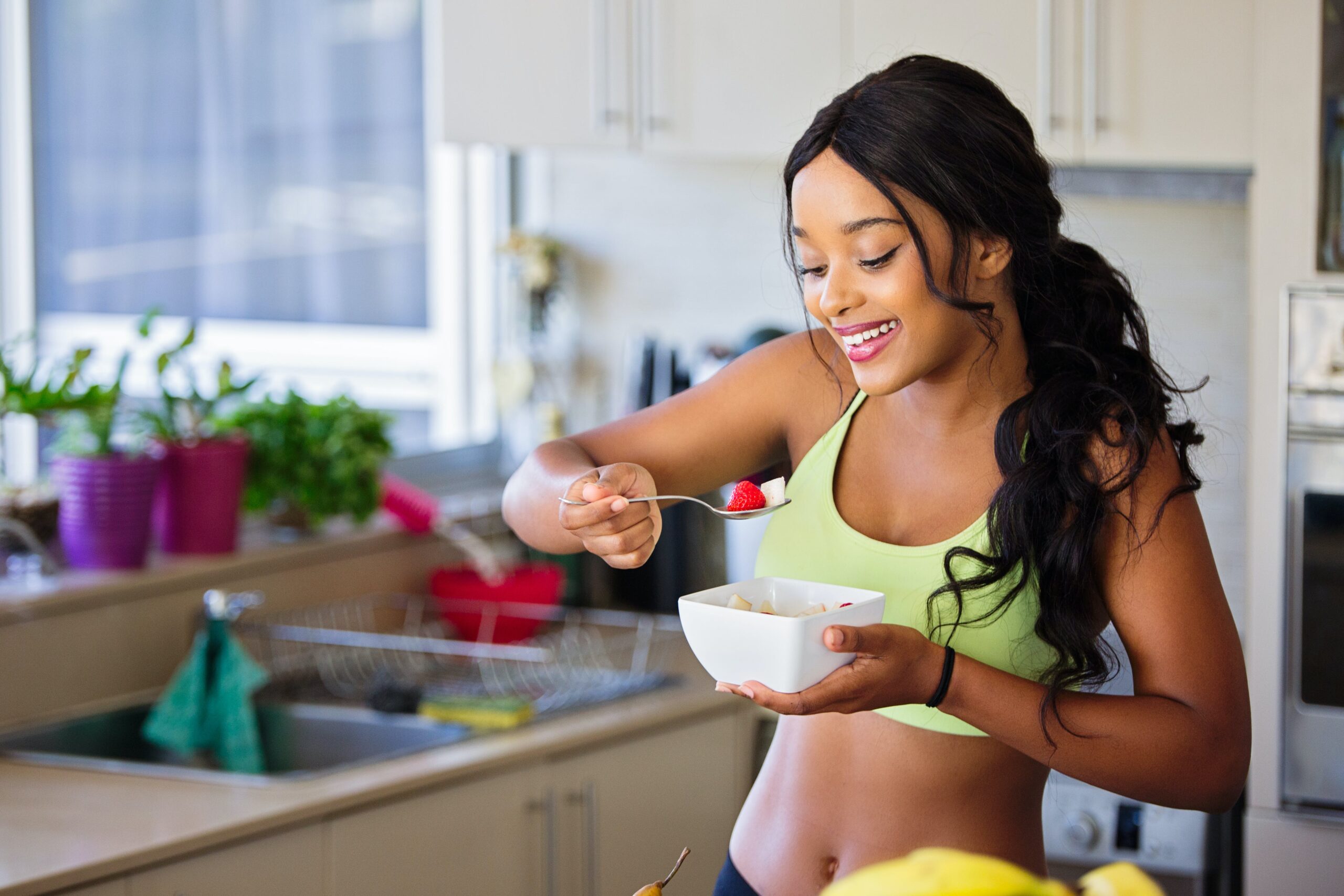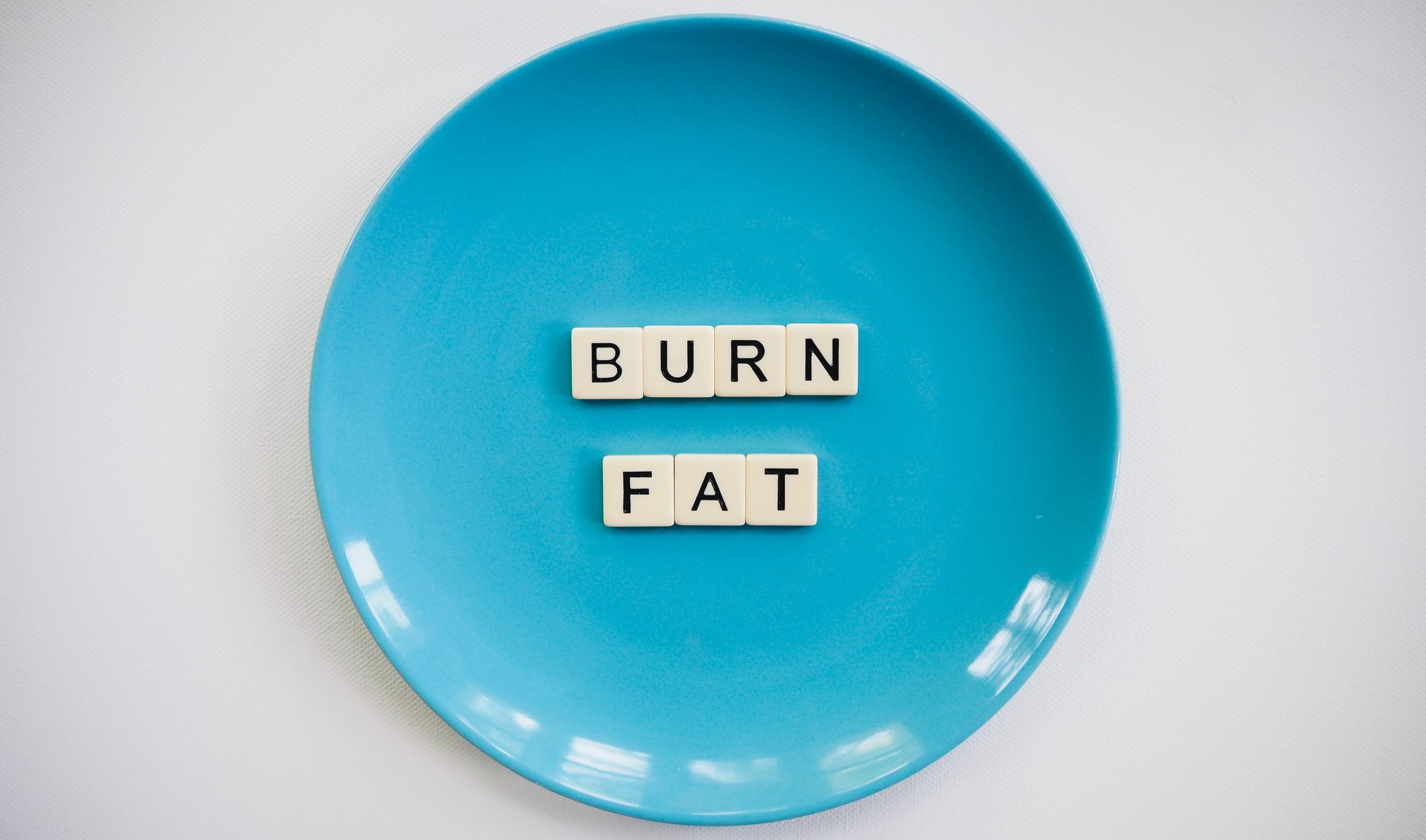The Corona crisis is demanding drastic adjustments to our daily routines. Not only do we have to make practical changes, it has a big emotional impact on us as well. For many of us this lockdown situation has changed the way we keep up our fitness and how we perform our training sessions. It’s frustrating not being allowed to do, what most of us like to do best, which is going for an outdoor run with our running mates. Training schedules are interrupted which may drop our fitness level and endurance. And those who signed up for a spring marathon or another race, will have to deal with the disappointment of the event being canceled. After all extra training efforts, it’s hard to accept the loss of the opportunity to achieve.
We are in an abnormal situation which is causing emotional stress. How can we take good care of our mental health & wellbeing?
Emotional stress symptoms

How we experience the situation and how we handle it has a big influence on our overall health and wellbeing. Everyone experiences emotional stress differently. Some people can handle more stress than others. But many people experience intense feelings of worry about the future: health is at risk, economy is uncertain and incomes may get lost . The limitations in freedom of movement aren’t helping either, to escape the daily buzz.
Emotional stress could develop behaviour changes, like being irritable or short tempered, having sleeping problems or a change in eating habits. But stress could also result in physical reactions such as: headaches, muscle tensions or digestion issues.
How can we be resilient and stay positive in this difficult situation?
10 Tips to deal with emotional stress during lockdown
There is not much that we can do to change the lockdown itself, but there are ways to better handle the emotional stress that is caused by the current situation:
1. Plan the day and make it happen

Routines are essential for our identity, self-confidence and purpose. It’s recommendable to start each day at the same time that we usually would. To avoid procrastination, write down and prioritise what needs to get done. Don’t write down endless to-do-lists that will hardly be doable in one day. Instead, plan of all the “must-do’s” in the available time and make sure you set realistic expectations. This will give you peace of mind. Don’t forget to schedule regular “me-time” as well. It’s important to allow yourself enough time for physical activities, relaxation, connection and reflection.
2. Physical exercise
 Our physical health is the foundation for our mental health. Physical activity will reduce emotional stress. It will increase energy levels, it makes us more alert and helps us sleep better. Even without being able to go for an outdoor run, we still need to keep up our fitness. A smartwatch or pedometer can be helpful to keep track of your progress and stay motivated to achieve a minimal daily fitness goal. Runners might use this time to work on flexibility and build on physical strength:
Our physical health is the foundation for our mental health. Physical activity will reduce emotional stress. It will increase energy levels, it makes us more alert and helps us sleep better. Even without being able to go for an outdoor run, we still need to keep up our fitness. A smartwatch or pedometer can be helpful to keep track of your progress and stay motivated to achieve a minimal daily fitness goal. Runners might use this time to work on flexibility and build on physical strength:
- Connect online with other runners. Facebook has many Runners Groups where people chat and share knowledge, practical tips and personal experiences.
- Do runners strengthening workouts to become a stronger, faster, and more efficient runner.
- Perform runners yoga or do specific runners stretches to improve flexibility and balance. Yoga also helps lower stress hormone levels and blood pressure.
- Add HIIT and cardio training.
- If you have a treadmill at home: keep up your running! You might even want to join a virtual race.
- Go for brisk a walk when you do your groceries. Do physical household chores while playing motivating music.
3. Healthy nutrition
 Not only can a healthy nutrition reduce the risks of diet-related diseases, it is also providing the brains with essential vitamins and minerals. Our brains allow us to move, speak, breathe, feel, think and much more. Fuelling your brain to boost its power and function, is crucial. Being mostly at home, now is the time to take dietary advantage. Find out more about healthy runners diets and try out new recipes or products. Use this time to develop healthier eating habits.
Not only can a healthy nutrition reduce the risks of diet-related diseases, it is also providing the brains with essential vitamins and minerals. Our brains allow us to move, speak, breathe, feel, think and much more. Fuelling your brain to boost its power and function, is crucial. Being mostly at home, now is the time to take dietary advantage. Find out more about healthy runners diets and try out new recipes or products. Use this time to develop healthier eating habits.
The following products and ingredients can boost your brain function: fatty fish, turmeric, blueberries, pomegranates, eggs, dark chocolate, nuts and seeds, bananas, (1-2 cups of) coffee and green tea. Best to avoid are processed foods or sugars, as they can lead to many health problems, including poor brain function.
4. Improve sleep
Get enough sleep. Most adults are recommended to sleep 7-9 hrs per day to function at their best. Regulating your body clock can help you sleep better, so go to bed at the same time each day. To calm down your eyes and brains, avoid using electronic devices (phone, tablet, computer or TV) for at least one hour before bedtime. This will help you fall asleep sooner and will improve the quality of sleep.
5. Relax
 Relaxing can help improve mental health and suppress negative feelings. Find a balance between responsibility to others and responsibility to yourself. To reduce stress levels, it’s crucial to prioritise self-care. Find out what makes you feel most relaxed and schedule enough time for it:
Relaxing can help improve mental health and suppress negative feelings. Find a balance between responsibility to others and responsibility to yourself. To reduce stress levels, it’s crucial to prioritise self-care. Find out what makes you feel most relaxed and schedule enough time for it:
- Breathing exercises can be very meditative and relaxing to body and mind. Specifically deep abdominal breathing. Learning how to establish and practice better breathing, is not only helpful for relaxation, proper breathing also has many additional benefits for runners, such as preventing side stitches, higher oxygen absorption and even a higher fat burn rate.
- Simply sit outside and appreciate natural wonders: the sunshine on your face, the flowers that are blooming, the birds that are chirping and the clouds changing shapes.
- Enjoy the peace of simple life at home, instead of the fast-paced speed of normal world. Take a nice long bath, light some candles make it cosy.
- Some people find watching television or Netflix very relaxing, as it offers us a temporary escape from our day-to-day worries. Just avoid binge watching and set a limit of time that you will watch TV. Too much TV will drain your energy level by the end of it. As laughter will relief tension by relaxing your muscles, find distractions in what makes you laugh. Choose to watch a funny movie or watch a stand up comedian performance.
- Instead of watching TV, you could also listen to funny podcasts, beautiful music or a nice audio book to relief stress.
- Make yourself useful by doing something practical. Simply do these things “just to do them”, not because it’s expected of you: take care of the plants in the garden or on your balcony, re-organise the furniture, make a photo album or prepare a nice meal. By working with your hands, you move your attention out of your head, which will distract you from negative thoughts. This might “relax” your mind for a while.
6. Reflect
 At the end of each day, make some time to reflect. Recognise what went well and think of all things that happened today, that you are grateful for. Write them down. Keeping a journal with a focus on the positive, can help relieve stress. Especially when life has become different or more difficult. Writing down a different set fitness goals and reflecting on how you experienced this new style of training, is also helpful to get rid of your frustration of not being able to do your usual runs.
At the end of each day, make some time to reflect. Recognise what went well and think of all things that happened today, that you are grateful for. Write them down. Keeping a journal with a focus on the positive, can help relieve stress. Especially when life has become different or more difficult. Writing down a different set fitness goals and reflecting on how you experienced this new style of training, is also helpful to get rid of your frustration of not being able to do your usual runs.
7. Mindfulness
Mindfulness is a mind-body approach to life, which increases our ability to manage difficult situations. It can reduce the effects of stress and related symptoms such as sleeping problems, concentration issues and low mood. By regularly shifting your attention to the moment, you will notice that you experience lower stress levels and learn to deal better with uncomfortable feelings.
Focus on the present, rather than thinking about things that happened in the past or might happen in the future. It’s no use to think about things that you can’t change or can’t influence. Also keep things in perspective, don’t dramatise: having a bad day or making mistakes, doesn’t mean life is a complete mess or you are a total failure. Appreciate yourself and be kind and supportive.
8. Limit loneliness – connect with people and support others

Having strong social ties may help you get through stressful times. Staying at home, especially for those who live on their own, can make one feel very lonely. Find different ways to keep in touch with family, friends, colleagues and also to your running buddies. It will help you (and them) feel more connected and supported.
Making yourself useful to other people, is a great way to experience fulfilment and meaning in uncertain times. Asking how someone is doing and being that person that actually listens with understanding, openness and compassion, might already be enough to make a difference.
Social media can connect runners and is an opportunity to exchange thoughts, feelings and practical tips. Sharing runners jokes, also makes us feel that we are still part of a lively and active runners community, even though we are alone and at home.
It’s not the same as real live contact, but we can still connect to and support other. Send each other letters or a parcel by post, make that phone or video call or connect through social media.
9. Patience and compassion for your partner, family and house mates
In difficult times it’s evenmore important to look after each other, protect each other and benefit to one another. But this at-home situation can get a bit challenging every now and then. Unlike a normal situation, we are now constantly surrounded by each other. Try to maintain a good atmosphere at home and be a pleasant member of the household: be patient and communicate openly, listen to each other without judgment, do little helpful things for others and make life a little bit more fun. Give space to others to have a bad day. Every now and then we might need some space for our own cranky moments as well.
10. Keep “Social media distance” and limit the frequency of news updates
 We all like to stay up to date on the COVID19 situation and other important news. There is a constant flow of new data and news information. An overload of this information can make us feel overwhelmed, worries and cause more stress. It is recommendable to limit the frequency a bit and schedule to check reliable sources just ones or twice a day. This way you’ll keep yourself well informed, but it will give your brain some emotional rest as well.
We all like to stay up to date on the COVID19 situation and other important news. There is a constant flow of new data and news information. An overload of this information can make us feel overwhelmed, worries and cause more stress. It is recommendable to limit the frequency a bit and schedule to check reliable sources just ones or twice a day. This way you’ll keep yourself well informed, but it will give your brain some emotional rest as well.
Social media distancing: For your own mental health, choose reliable sources to keep you informed about COVID19 and limit the use of social media for this matter. They spread a lot of rumours and personal opinions of people who have no expertise in the field.
Stay positive – the Corona crisis will pass
Take it one day at a time, don’t panic and be patient. Everything is temporary and so is this Corona crisis.
At the moment terrible things are happening, there is suffering, fear and uncertainty, but this too shall pass. Don’t waste your time being angry or frustrated for too long. Choose on who and what to spent energy on. Accept that this situation is what it is, for now. Let go of any plans in the next few months to avoid disappointment of cancellations again. Instead take the situation a day at a time. Right now we cannot live our lives the same way as we did before. No we can’t go for an outdoors run with our training buddies and no, we cannot do the races that we trained for so long. But focus on what we can do today to make it a good day. Do that!
 Meanwhile: Keep well and stay safe. Follow the official health guidelines and regulations. Let’s look after ourselves and take good care of our bodies and minds. Stay positive. Life will be better again!
Meanwhile: Keep well and stay safe. Follow the official health guidelines and regulations. Let’s look after ourselves and take good care of our bodies and minds. Stay positive. Life will be better again!
I really hope this article is helpful in this stressful period that we are going through. Please consider sharing this post with friends and family, who may be struggling with more emotional stress at the moment. Even for non-runners, the tips may be useful. If you have any questions or additional tips on this topic, please don’t hesitate to send me an e-mail at an*******@mo*********.com or leave your comment below.
As the situation is developing rapidly, please check reliable resources regularly for the most up-to-date information. Recommended resources:
- World Health Organization – general, daily situation reports
- European Centre for Disease Prevention and Control
- Centers for Disease Control and Prevention
For public health, stay updated on what’s going on in your living area. Find out about your local restrictions or mandatory self-quarantines and check out your own governmental websites on COVID-19 news.






These are great tips and reminders on how to take better care of our physical and mental wellbeing. I like the idea of “social media distancing”. I think that’s a phrase that should get spread around! It’s so good to take breaks from social media and the news when it leaves us feeling drained and discouraged. Great post!
Thanks Carla!Stay well and safe!
Hi Angelique,
Thank you for the very valuable timely content. Is there any reason why didn’t include meditation here? Do you think mindfulness will have the same effect?
Hi Rajith, thgnks for your message. No there is no reason why I didn’t include meditation. I am sure there are many more activities that are relaxing, such as playing music or making art. Surely meditation is also something to consider as a way to relieve emotional stress.Breathing and some forms of yoga can be meditative too (that’s what I practice myself). Would you recommend any specific meditation methods?
Its a fact that a lot of people are going through so much emotional stress at a time like this, its not easy for one to change his daily life routine to a total different one cos of the ravaging pandemic, it definitely comes with a lot of emotional stress.
On this article are various ways to deal with such stress and they are great tips and reminders on how to take better care of our physical and mental wellbeing. I like the idea of “social media distancing”. I think that’s a phrase that should get spread around all social media. It will help a lot of people out there.
Thank you for your nice comment. I hope you (and your family/friends) are all still healthy and well? Take good care of yourself!
Of a truth so many persons are going through much emotional and physical stress due to the global pandemic that has resulted to a general lockdown. Thanks for these tips given to manage emotional stress it’s really going to be helpful. Whenever I noticed that I am emotionally stressed, the best thing I do is excercise and sleep very well and it has really been helping me but I think from your tips given I really need to work on mindfulness.
Hi, thanks for your comment. I hope you are OK (and will stay that way too). I’m glad to read that my tips might be helpful. Let me know if you find additional things to do (or stop doing) to relieve emotional stress. For me exercising and good sleep is also very helpful. Plus yoga and breathing techniques. Im learning more about better breathing.Stay healthy and safe!
I am glad to have come across this post. I agree with you 100% that we have to be creative during this period of lockdown and for us to plan our day with routines. With the corona virus that has caused this lockdown which we don’t know when it will come to end, I am glad to hear some encouragement from you as you mentioned us staying calm and that the virus will come to past.
You outlined so many great points on how to deal with emotional stress during this period. One of those points that really got my attention is the 10th point about keeping social media distance. I so much agree with you. The propaganda on social media with most info been falsify even kills more than the virus itself. People been afraid because of what they read on media, causing panic and so much stress. Staying away from social media will help us from mental instability and will reduce stress of thinking and worry.
Yes, i also agree about the uncertainty and fear with things happening around us each day. My advice is for individuals to obey the government laws and stay at home till this is over. Be creative and try to learn new things on your own. I will request to share your post to my social media platform. Thanks for sharing.
I totally agree! Thanks for your comment. Stay well!
The covid 19 pandemic as sent fear and panic across the globe and the restriction of movements may get to us personally.
it is important to engage in useful and helpful activities. Good sleeo, relaxation and exercise can do a lot of good. i engage in learning new recipes also. It helps
That’s lovely! Share some good healthy recipes with us, will you? Take care and stay safe! Thanks for your comment.
The social media distancing is even more important than the social human distancing because the whole media is full of panic information that triggers the blod pressure intantly and ravaging dear grips the body. Yes information may be good but it should be highly sensored this period to maintain sanity as more folks are losing it more to the fear of the situation than the actual virus itself.
Mindfulness and meditation exercises that involve deep breathing practices are very helpful to both health and fitness and can be done indoors too, they sometimes take up a lot of time if one develops love for them and this period can be used to go within and tap into the inner resources of our soul to birth new ideas and greater ways of living and earning. This whole situation can be turned into an opportunity for personal development that may prove to be the best period of our lives.
Cheer up folks, we will all come out better and stronger!
Exactly! Instead of wasting our time on stressful social media, we could use this period to learn something new and or do something useful, not only for now, but also for future! Be strong and stay well!
If there is one thing i do not joke with, that is my nutrition. i have the mindset that we are what we eat so i try to maintain a healthy diet. this reliefs me of stress.
getting a good sleep is also one particular habit that i can pick out from this article.
thank you for all these great tips. they will help most especially during this period of lock down
Hi, thanks for your comment. I’m glad you’ve found some useful tips to put into practice. Stay safe and healthy!